-
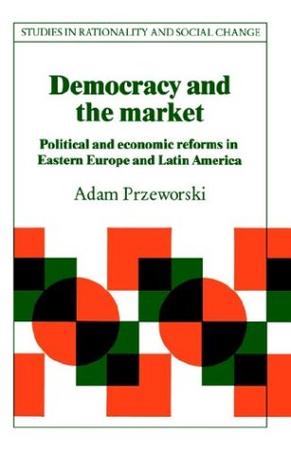
Democracy and the Market
The quest for freedom from hunger and repression has triggered in recent years a dramatic, worldwide reform of political and economic systems. Never have so many people enjoyed, or at least experimented with democratic institutions. However, many strategies for economic development in Eastern Europe and Latin America have failed with the result that entire economic systems on both continents are being transformed. This major book analyzes recent transitions to democracy and market-oriented economic reforms in Eastern Europe and Latin America. Drawing in a quite distinctive way on models derived from political philosophy, economics, and game theory, Professor Przeworski also considers specific data on individual countries. Among the questions raised by the book are: What should we expect from these experiments in democracy and market economy? What new economic systems will emerge? Will these transitions result in new democracies or old dictatorships? -
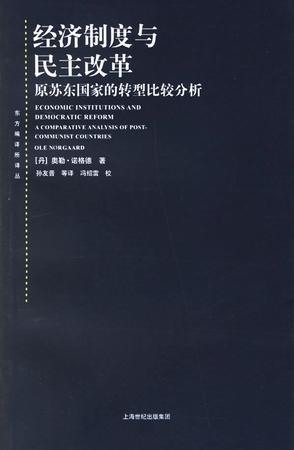
经济制度与民主改革
本书是一本针对原苏东国家的政治经济转型进行深入学术分析和理论思考的力作。全书涉猎广泛,综合运用全球资本主义、民主化、经验制度主义和历史制度主义等理论,结合比较统计法和个案分析法,以全球视野审视当前正在推行市场化和民主化改革的转型国家,重点剖析原苏东20国在过去十年(1989—1999)的经验教训,深入探讨市场与民主、经济转型与政治改革之间的关系。 全书从外部结构变量(初始条件和外部环境)和内部转型战略两个层面入手,以政治学视角剖析经济体制改革,将其划分为美国、西欧和东亚三种转型模式。作者旨在回答下述问题:为什么有些国家在实施经济转型方面比其他国家能力更强、成就更显著?激进转型战略与渐进转型战略哪一种更优越?哪一种模式是最佳转型模式?本书的结论发人深思,对于当前正在思考中国改革得失、探索未来改革之路的国内学者来说,具有深刻的启迪和借鉴意义。 -
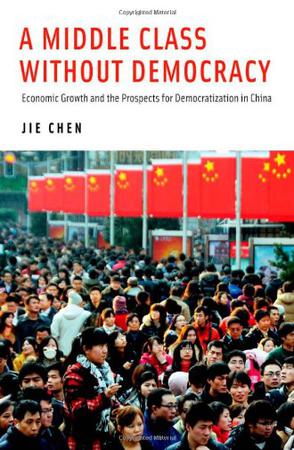
A Middle Class Without Democracy
What kind of role can the middle class play in potential democratization in such an undemocratic, late developing country as China? To answer this profound political as well as theoretical question, Jie Chen explores attitudinal and behavioral orientation of China's new middle class to democracy and democratization. Chen's work is based on a unique set of data collected from a probability-sample survey and in-depth interviews of residents in three major Chinese cities, Beijing, Chengdu and Xi'an—each of which represents a distinct level of economic development in urban China-in 2007 and 2008. The empirical findings derived from this data set confirm that (1) compared to other social classes, particularly lower classes, the new Chinese middle class-especially those employed in the state apparatus-tends to be more supportive of the current Party-state but less supportive of democratic values and institutions; (2) the new middle class's attitudes toward democracy may be accounted for by this class's close ideational and institutional ties with the state, and its perceived socioeconomic wellbeing, among other factors; (3) the lack of support for democracy among the middle class tends to cause this social class to act in favor of the current state but in opposition to democratic changes. The most important political implication is that while China's middle class is not likely to serve as the harbinger of democracy now, its current attitudes toward democracy may change in the future. Such a crucial shift in the middle class's orientation toward democracy can take place, especially when its dependence on the Party-state decreases and perception of its own social and economic statuses turns pessimistic. The key theoretical implication from the findings suggests that the attitudinal and behavioral orientations of the middle class-as a whole and as a part-toward democratic change in late developing countries are contingent upon its relationship with the incumbent state and its perceived social/economic wellbeing, and the middle class's support for democracy in these countries is far from inevitable. -
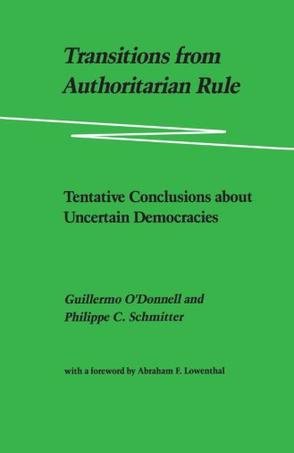
Transitions from Authoritarian Rule, Vol. 4
Review "The essays appearing in the collection 'Transitions from Authoritarian rule'...will serve as reference points for students of redemocratization for years to come. Other essays will serve as classic case studies...the volumes deserve to be read time and again."--Nancy Bermeo, 'Comparative Politics' Review "The essays appearing in the collection Transitions from Authoritarian rule... will serve as reference points for students of redemocratization for years to come. Other essays will serve as classic case studies... the volumes deserve to be read time and again." -- Nancy Bermeo, Comparative Politics -
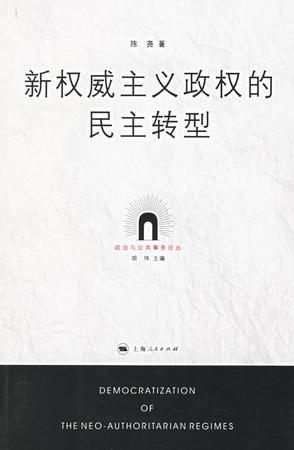
新权威主义政权的民主转型
20世纪70年代中期兴起的全球范围向民主的转型,标志着民主事业在人类政治文明发展进程中迈出了关键一步。
绝大多数有关这一时期民主化原因的研究均归结于外力或政治之外因素的作用,比如国际力量的推动、经济结构危机、邻国的示范效应,即使极少数学者从政治本身出发,也只是从精英选择的角度分析,很少有学者将研究的重点放在政治体制和政权内部结构。按照马克思主义的观点,这些研究方法忽视了社会活动的基本规律,即任何事物在其发展进程中,变革的决定性因素在于内部而不是外部,换言之,事物的发展取决于内因而不是外因。因此,政治变革中的民主化的根本原因在于前民主化政权内部结构的问题,本书正是从这一角度出发,研究新权威主义政权内部的结构变化所导致的民主转型。
本书分为七个部分。
第一章为引论。分析了选题的原因、研究方法和研究所要注意的几个方面。在20世纪末的民主化背景下,人们对新权威主义政权的转型认识是模糊的,对新权威主义政权的发展历程及其历史命运难以把握。理论上的模糊也使得政治精英们的选择失去了方向,从而使政治变迁显得扑朔迷离,政治现代化的进程充满艰难。如何理解新权威主义政权转型的根本动因,是本书尝试进行解释的。关于新权威主义政权的研究在理论上主要有两个来源:比较研究方法和政治发展理论,对此本书作了简单的回顾。此外,这一部分还对研究所注意的几个方面进行了简要提示。
第二章为概念与理论。对权威主义、新权威主义的概念进行了梳理,并从两个维度——意识形态和政权形态分析了权威主义的表现形态。
第三章分析了新权威主义政权的兴起。新权威主义政权是现代化进程的产物,是现代化进程中制度变迁在政治结构体制上的反应,这种反应受到了殖民主义的历史、前现代化的经济结构、政治文化传统等因素的重要影响,同时也受制于社会发展过程中的即时事件的作用。发展中国家进行了制度容纳的尝试,包括多元民主体制、形形色色的社会主义体制及寡头或军人政权,但大多不成功。在工业化进程及其带来的社会、经济危机的冲击下,少数发展中国家最终选择了新权威主义体制。
第四章分析了新权威主义政权的结构及结构性危机。结构是研究政治的一个关键性变量。新权威主义政权内部存在两种结构:专制结构和同意结构。专制结构主要由行政首脑及行政机构、军队、技术官僚和政党组成。同意结构则由代议机构、利益集团、公共舆论和社会运动组成。新权威主义政权中专制结构和专制权力占据了主导地位,同意结构和同意权力很少或几乎不发挥作用,政权主要依靠强制、镇压、说服来维持社会秩序和推动经济增长。现代化发展和社会变迁导致新权威主义政权内部的专制结构和同意结构之间形成了一种张力,这种张力是新权威主义政权不稳定的根源。新权威主义政权试图建立各种协调机制缓解张力,但政权的性质决定了专制结构的地位不可能被取代,从而也就决定了政权不可避免地走向危机。
第五章围绕新权威主义政权的有效性和合法性展开论述。新权威主义政权的结构性危机并不导致其即刻的解体,政权的有效性在一定程度上维护了政权的生存。新权威主义政权的有效性来源于其对经济发展的推动作用。通过对政治结构与经济发展之问关系的考察,本书认为,政治发展与经济发展之间并没有简单、直接的逻辑关系,新权威主义政权相对于其他发展中国家取得了较大的经济发展成就,不在于其经济发展战略或政策的合理,而在于政权的能力。经济绩效在一定程度上维护了政权的合法性,但有效性不等于合法性,现代化发展到了一定时期,政权的有效性也就无法满足社会对政权合法性的要求。这种外部因素仍然不能克服政权结构本身内在的结构性危机。
第六章描述了新权威主义政权在“第三波”民主化浪潮中的解体。新权 威主义政权的结构性危机在内部和外部因素的推动下终于全面爆发,在体制上逐步向民主转型。但是,由于大多数转型是外部力量的推动或政治精英的主动选择,因此转型后面临着政治体制的巩固问题。如何巩固民主体制是新权威主义政权在转型之后必须应付的重大挑战。
最后一部分分析向民主转型后的新生民主政权在巩固民主制度方面的努力,以及这些政权在民主制度巩固过程中受到的影响因素,包括社会经济因素、政治传统、转型的方式、情境问题以及具体民主制度的选择等。不同的影响因素对转型后的民主政权的巩固产生了不同的作用。尽管有少数国家仍然处于转型后的动荡之中,但大多数政权在转型之后基本上坚持了下来。
至今为止,新权威主义政权在民主道路上尽管艰难,但却始终朝向民丰的目标前行。 -
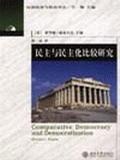
民主与民主化比较研究